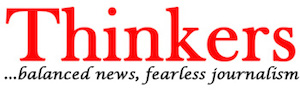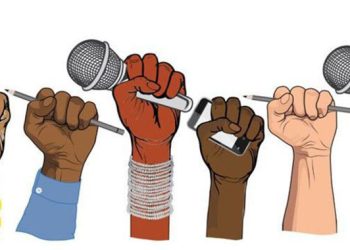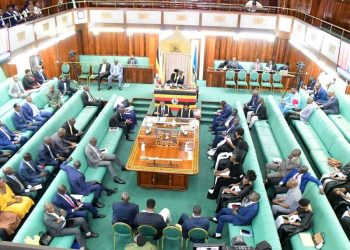When the idea of founding an International Football Federation was birthed on that blistering sunny afternoon in Paris, May 21, 1904, the authorized delegates of the 7 founding countries had just one objective in mind: to unify the laws of the game with a view to making it clear to all actors whilst setting the foundation for all future football development.
Due to the popularity of soccer and the awesome powers of the World Cup, the Federation of International Football Association (FIFA) exerts quite an important influence over the rest of the world. Countries suspend their laws for FIFA. FIFA-sponsored matches have both incited and stopped wars, as in the cases of the football War between Honduras and El Salvador after 1969 World Cup qualifiers and the ceasefire between warring parties in the First Ivorian Civil War.
Their acts in South Africa near the end of apartheid contributed to the end of such problematic system; when Nigeria was finally allowed into the league, it signaled a major breakthrough for the national unity of our dear country. Apart from being admitted to the UN, membership of FIFA is the clearest signal that a country’s status as a sovereign state has been recognized by the international community.
The 111 year old organization oversees 209 national associations with an annual revenue stream of over $1.3 billion and about the same amount in cash reserves. By selling the commercial rights to soccer tournaments that are then sold by sports marketing companies, FIFA generates enormous profits estimated at $2.6 Billion Dollars according to Financial Times.
Decades after its noble birth, this respected and highly revered global body has plunged compulsively into a cesspool of corruption and decay. A body which is supposed to be a torchbearer is now being perilously plagued with countless cases of bribery and wanton scandals at all levels with devastating consequence on the beautiful game we love so much.
Although, the issue of endemic corruption within the body has being simmering over the years, it most profoundly reared its ugly head during the body’s 65th Congress held recently at the Hallenstadion Zurich – Switzerland. The scandal took an interesting twist two days to the Congress when 14 executives and officials of the body were arrested in dawn raids by Swiss police. The raid was part of an ongoing investigation into corruption which concerns racketeering, wire fraud, vote-buying and money laundering over the course of 24 years.
Lovers of football worldover were left mortified by the murky revelations spinning from both present and past top executives of the body. How could the premier governing body of international football be embroiled in such obnoxious saga? Joseph Sepp Blatter’s tenure in particular has been most inundated with unethical and legal transgressions. Having worked at the organization since 1975, Mr. Blatter was elected the 8th president of FIFA, succeeding João Havelange. The vote, in which Blatter, a Swiss administrator won over Lennart Johansson, a Swede, was mired in controversy.
In his book, “How They Stole the Game,” David Yallop pointed out that Twenty FIFA delegates allegedly received $50,000 each — a total of $1 million — from a Middle Eastern leader who flew the cash by private jet to Paris to facilitate Mr. Blatter’s election. His re-election was also characterized by new allegations of financial irregularities. The general-secretary of the association, Michel Zen-Ruffinen accused Blatter of corruption in a report given to the organization’s executive committee. In a “strictly confidential” 21-page dossier obtained by Reuters, Zen-Ruffinen described cronyism, illegal payments and deception that he said had characterized Blatter’s first term. The accusations were presented in advance of the election in which Blatter defeated Cameroonian Issa Hayatou.
Like his boss, Vice President Jack Warner was also enmeshed in the shameful act that has pervaded the global football governing body. After his native Trinidad and Tobago qualified for the World Cup in Germany 2006, FIFA took over the marketing of tickets in his home country. An investigation by FIFA’s disciplinary committee revealed that his family business was profiting from reselling tickets at three times its value. As a result, Warner received a warning from FIFA’s disciplinary committee. On June 20, 2011, facing bribery allegations, Warner resigned from his post. FIFA statement after his resignation read in part: “As a consequence of Mr. Warner’s self-determined resignation, all Ethics Committee procedures against him have been closed and the presumption of innocence is maintained.”
Back home in Nigeria, One of FIFA’s most senior figures, Amos Adamu, was accused of bribery. Adamu, who served as an executive committee member of FIFA from 2006, was suspended for three years and ordered to pay a fine of 10,000 Swiss francs ($10,516) after FIFA’s ethics committee found out he breached rules by offering to sell his votes in deciding which countries would host the 2018 and 2022 World Cups. Executive committee member Reynald Temarii of Tahiti was suspended for a year and ordered to pay a fine of 5,000 Swiss francs ($5,258). Four other officials were suspended provisionally. FIFA suspended Temarii again on May 13, 2015, this time for eight years, for accepting more than 300,000 euros ($327,051) from former Asian Football Confederation (AFC) President Mohamed bin Hammam.
In May 2011, a member of the British parliament, Damian Collins cited evidence from a major undercover investigation by the Sunday Times newspaper that Issa Hayatou of Cameroon and Jacques Anouma of the Ivory Coast were paid by Qatar. Football Association chairman Lord Triesman alleged at the same House of Commons hearing before a group of MPs that four FIFA executive committee members had asked for favors in return for votes for the 2022 World Cup bid.
Barely 2 months after the allegations against Hayatou and Anouma, Mohamed bin Hammam, former head of Qatar, AFC was banned for life by a FIFA ethics committee after a hearing into bribery allegations. He was accused of giving cash pay-outs to top soccer officials for their votes, leading him to withdraw from the presidential race against Blatter on June 1. Although an appeal was rejected by FIFA, the Court of Arbitration for Sports eventually annulled the ban on July 2012. In December 2012, FIFA imposed a second lifetime ban, revealing “conflicts of interest” while he served as AFC president.
Swiss law enforcement agents arrested seven top FIFA officials in Zurich on bribery and racketeering charges brought by the U.S., and Swiss prosecutors announced a criminal case in connection with the awarding of hosting rights for the 2018 and 2022 World Cups. Fourteen figures named in a 47-count indictment unsealed at a federal court in New York City and faced extradition to the U.S. for questioning. The kickback scheme involves $150 million and spans a 24-year period. Among those charged are FIFA Vice President Jeffrey Webb and Jack Warner — the current and former presidents of the Confederation of North, Central America and Caribbean Association Football (CONCACAF).
With such rampant corruption in FIFA, it behoves the organization to take a look at some of its policies. There must be an urgent and comprehensive review of procedures and processes in FIFA. The more open and transparent the process and procedures are, the less opportunity it will provide for malfeasance and abuse. If it may take the entire crop of its top officials to resign to allow for men of proven integrity and respect for statutes to take over, then so be it. In reality though, all we can is continue to spread information and hammer home the message that we do not want our beautiful game to be grounded by few individuals who are hell-bent on misusing entrusted powers for personal gains. FIFA may ignore our cry for the right things to be done for now, but soon they will have no choice but heed.





















